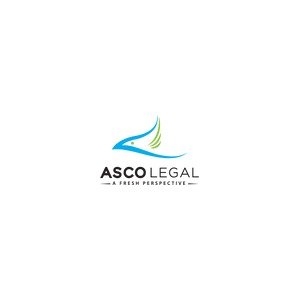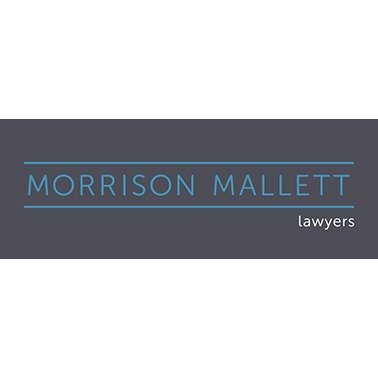Best Renewable & Alternative Energy Lawyers in Auckland
Share your needs with us, get contacted by law firms.
Free. Takes 2 min.
List of the best lawyers in Auckland, New Zealand
About Renewable & Alternative Energy Law in Auckland, New Zealand
Renewable and alternative energy law in Auckland, New Zealand, focuses on the legal aspects of developing, generating, and distributing energy from sources such as solar, wind, hydro, geothermal, and bioenergy. As the country pursues ambitious sustainability goals, there are multiple laws and regulations at both national and local levels that impact businesses, landowners, and individuals interested in renewable energy. These legal frameworks aim to support cleaner energy production while protecting the environment, property rights, and the interests of the public.
Why You May Need a Lawyer
Legal advice is essential in several renewable and alternative energy matters. Some common situations where individuals or businesses may need a lawyer include:
- Negotiating contracts for energy supply or equipment installation.
- Dealing with resource consents for new wind, solar, or hydro installations.
- Understanding land use and property rights related to energy projects.
- Navigating compliance with local and national energy laws and regulations.
- Resolving disputes with neighbours, councils, or contractors.
- Applying for government incentives, subsidies, or support schemes.
- Managing risks and liabilities associated with renewable energy projects.
- Protecting intellectual property and proprietary technologies.
Local Laws Overview
In Auckland, renewable and alternative energy activities are governed by a combination of national legislation and local regulations. Key legal frameworks include:
- Resource Management Act 1991: This national law regulates the use of land, water, and resources, influencing where and how renewable energy facilities can be built and operated. Resource consent from the local council is often required for significant developments.
- Electricity Act 1992: Outlines the rules for generating, distributing, and retailing electricity, including provisions specific to renewable energy projects.
- Auckland Unitary Plan: Sets out the city’s planning rules, including zoning, permitted activities, and environmental impact requirements for energy installations.
- Building Act 2004 and Building Code: Regulates the construction and safety standards for infrastructure like solar panel installations and wind turbines.
- Emissions Trading Scheme: A market-based mechanism that can apply to some renewable energy activities, depending on their scale and type.
Local councils, including Auckland Council, play a key role in granting resource consents and ensuring compliance with these laws. Incentives or support programs may also be available for certain projects.
Frequently Asked Questions
What renewable energy options are commonly used in Auckland?
Auckland residents and businesses often use solar, wind, and bioenergy. Solar panels are the most popular for homes, while some commercial sites use wind or small hydro power where appropriate.
Do I need permission to install solar panels on my property?
In many cases, small-scale solar panel installations for residential properties are permitted activities, but you should always check the Auckland Unitary Plan and consult with Auckland Council to confirm whether special permissions or building consents are necessary.
Are there any government incentives for installing renewable energy systems?
There are sometimes grants, loans, or incentive schemes provided by government bodies or regional councils. These programs change regularly, so it is important to check current offerings or speak with a lawyer who can advise on eligibility.
How are disputes over shared renewable energy systems handled?
Disputes may arise over access, maintenance, costs, or usage of shared systems such as solar arrays on multi-unit dwellings. These are usually resolved through negotiation or, if necessary, legal action using dispute resolution processes or by seeking guidance from the Tenancy Tribunal or District Court.
What is a resource consent, and when do I need one?
Resource consent is permission from the local council required for projects or activities that could impact the environment. For medium to large renewable energy installations, or when modifying land use, a resource consent is generally required.
Can I sell surplus electricity back to the grid?
Yes, many energy retailers in Auckland offer schemes for buying back surplus electricity generated by consumers using solar or wind. You will need the right metering equipment and a contract with your retailer.
Are there environmental controls on renewable energy projects?
Yes, projects must comply with environmental standards set by the Resource Management Act 1991 and local planning rules, especially regarding noise, visual impact, and effects on local ecosystems.
Who regulates renewable and alternative energy in Auckland?
Multiple entities are involved, including central government agencies, Electricity Authority, Auckland Council, and the Commerce Commission, depending on the aspect of regulation involved.
Can renewable energy projects affect my property value?
The impact varies depending on the type and scale of the project. Well designed and located systems typically have a neutral or positive effect, but poorly planned projects may raise concerns among neighbours and affect property values.
What legal risks should I consider before starting a renewable energy project?
Risks include non compliance with building or resource consent requirements, contractual disputes with installers or contractors, liability for damages or injuries, and potential neighbourhood objections. A lawyer can help you identify and manage these risks.
Additional Resources
For those seeking further information or legal advice on renewable and alternative energy in Auckland, the following organizations and resources may be helpful:
- Ministry of Business, Innovation and Employment (MBIE) - responsible for national energy policy and regulations
- Auckland Council - handles local resource consents and provides guidance on planning rules
- Electricity Authority - oversees the electricity system and market regulation
- Energy Efficiency and Conservation Authority (EECA) - provides information and incentives for energy efficient and renewable solutions
- Sustainable Energy Association of New Zealand (SEANZ) - industry body for solar and energy storage providers
- New Zealand Green Building Council - information on sustainable building practices including renewable energy integration
Next Steps
If you are considering a renewable or alternative energy project, or need help with an energy related issue in Auckland, follow these steps:
- Identify the nature and scale of your project or legal issue.
- Gather all relevant documents, such as property titles, previous consents, or contracts.
- Consult Auckland Council’s website or contact their planning team to understand local requirements.
- Seek out a legal specialist with experience in renewable and alternative energy in Auckland. Many firms offer an initial consultation to evaluate your case or project.
- Discuss your goals, potential risks, and compliance requirements with your lawyer to create a clear plan of action.
- Stay updated on changes in legislation and incentives which could affect your case or investment.
Professional legal advice can help you avoid common pitfalls, ensure compliance, and protect your interests as you navigate the growing field of renewable and alternative energy in Auckland.
Lawzana helps you find the best lawyers and law firms in Auckland through a curated and pre-screened list of qualified legal professionals. Our platform offers rankings and detailed profiles of attorneys and law firms, allowing you to compare based on practice areas, including Renewable & Alternative Energy, experience, and client feedback.
Each profile includes a description of the firm's areas of practice, client reviews, team members and partners, year of establishment, spoken languages, office locations, contact information, social media presence, and any published articles or resources. Most firms on our platform speak English and are experienced in both local and international legal matters.
Get a quote from top-rated law firms in Auckland, New Zealand — quickly, securely, and without unnecessary hassle.
Disclaimer:
The information provided on this page is for general informational purposes only and does not constitute legal advice. While we strive to ensure the accuracy and relevance of the content, legal information may change over time, and interpretations of the law can vary. You should always consult with a qualified legal professional for advice specific to your situation.
We disclaim all liability for actions taken or not taken based on the content of this page. If you believe any information is incorrect or outdated, please contact us, and we will review and update it where appropriate.

















